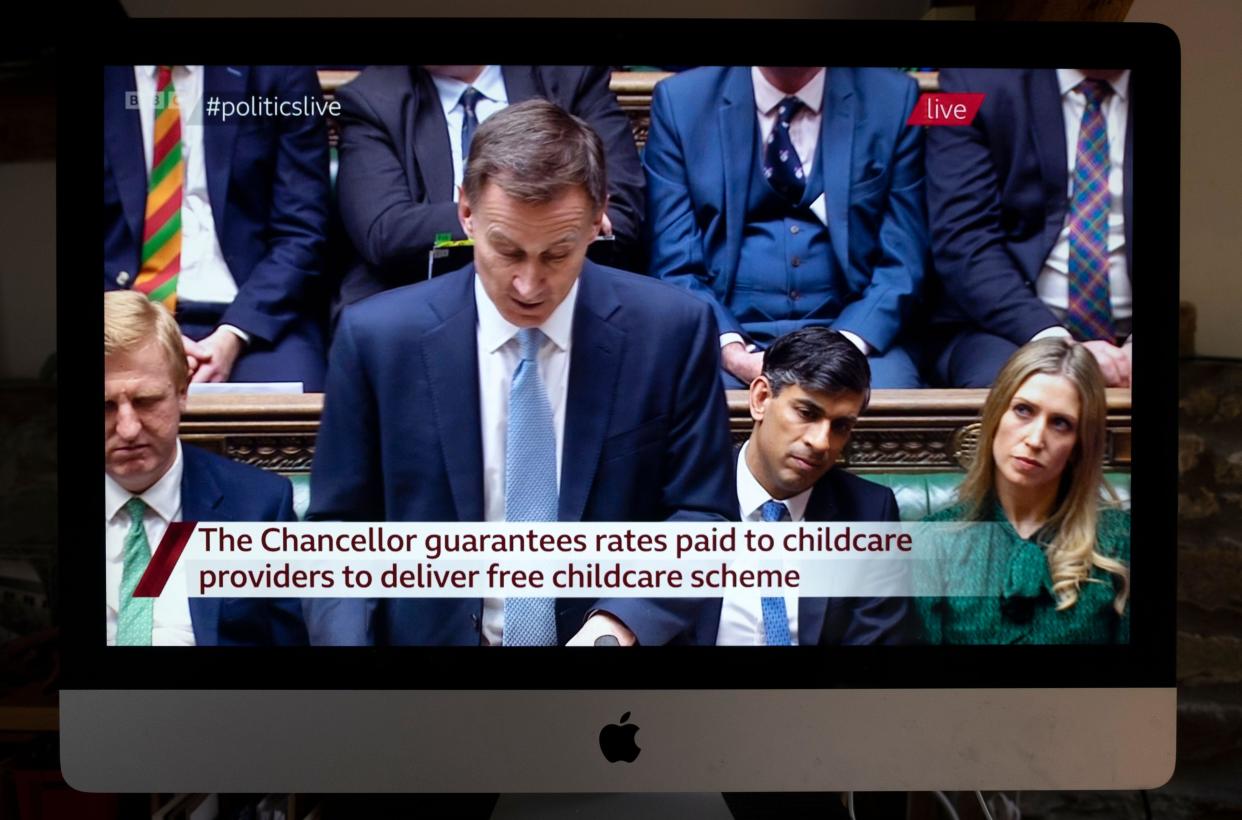Who is eligible for free childcare and how can I apply?

Working parents are to start benefiting from up to 30 hours of free childcare from this week.
From Monday the government will fund 15 hours per week of free childcare for eligible working parents whose children are between nine months and two years old – in addition to an existing offer to parents of two-year-olds and 30 hours of free childcare already offered to parents of children aged three and four.
The Department for Education committed to funding the 30 hours of free childcare in line with commitments made by the former Conservative government, with the scheme set to expand again next September.
Education Secretary Bridget Phillipson said early years support is her “number one priority” but the department will need to source 85,000 more childcare places by September 2025 compared with 2023 to expand the offer.
The government has previously said it will aim to meet its targets by using disused primary school buildings to build more nurseries.
When does 30 hours free childcare start?
Free childcare is being rolled out in stages.
Since April there has been 15 hours free childcare a week for two-year-olds, and now another 15 hours are available for nine month olds - starting from September.
From Monday the government will fund 15 hours per week of free childcare for eligible working parents whose children are between nine months and two years old.
This is on top of an existing offer to parents of two-year-olds and 30 hours of free childcare already offered to parents of children aged three and four.
The scheme will expand to include 30 hours of free childcare for all under-fives from September 2025.

Who is eligible for 30 hours free childcare?
The help you can get depends on the age of your child, and whether you are working, or receiving certain benefits.
To qualify for 30 hours of free childcare, each parent (or sole parent if in a single family) needs to earn on average, the equivalent of 16 hours a week national minimum or living wage, and no more than £100,000 a year.
That means a family with an annual household income of £199,999 would be eligible if each parent earns just under £100,000.
If you are self employed or on a zero-hour contract, you will be eligible if you meet the average earnings threshold. You will also still be eligible if you usually work but one or both parents are away from work on statutory sick pay or one or both parents are on parental, maternity, paternity or adoption leave.
You're also still eligible if one parent is employed, but the other has substantial caring responsibilities or is disabled or incapacitated.
If you earn fewer than 16 hours a week, but in that time earn more than the equivalent of 16 hours per week at national living wage (or minimum wage for under 25s), you'll also still be eligible.
How does the 30 hours free childcare work?
If you want to apply for free childcare, you need to apply before the start of the term when your child will be eligible.
That means to qualify from Monday, you should have applied by the deadline of 31 August.
If you think your child is eligible, you should complete a form on the government website. Apparently this can take around 20 minutes, then in most instances your eligibility will be confirmed immediately but in some complex cases, it can take longer.
Once approved, you will get a code to give to your officially-registered childcare provider.
The free childcare hours can be used during school term time, though some providers can extend them to longer. Some childcare providers charge for extras like meals, nappies, sun cream or trips but parents can supply their own to avoid paying extra.


